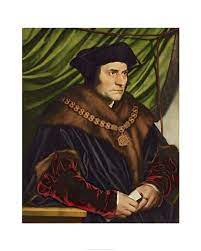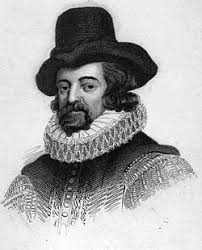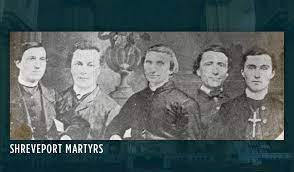Here’s to Your Health
There are vastly different interpretations and styles of expressing foundational principles of Christianity and other religions. One such message is that the value of human life on earth takes a back seat to the reunification of the soul with the creator, or gods —be it in Heaven, Valhalla, the Garden of Eden, or some other divine destination. Critics have claimed that this idea is ultimately a death wish—if the Promised Land was so great, what is the point of sticking around for more of this mix of misery and heartbreak we know lies ahead here on Earth? Paul was likely the first to express it: For me to live is Christ, and to die is gain. But if I live in the flesh, this the fruit of my labour: yet what I shall choose I wot not. For I am in a strait betwixt two, having a desire to depart, and to be with Christ; which is far better.ⁱ If not evidence of an actual underlying death wish, this line of reasoning could lead to a mindset of minimizing or disregarding healthy lifestyle options and decisions concerning one’s physical body, believing you’ll be in a good place if your health fails you.
Following are two approaches to explaining this macabre messaging, the first a more general overview with references to classic works of literature, and the second deals with the recent COVID pandemic in the style of the uninhibited, in-your-face American patriotic-preachin’-for-freedom.
“Health is a good, but when considered the essential good, neither Christianity nor civil society can flourish. Yet the moral justification for nearly every policy proposal assumes life as the highest good—” writes W. Joseph Dereuil in his article “American Atlantis”, published in The American Postliberal newsletter last week in defense of this theme. He goes back to Sir Thomas More’s Utopia, published in 1516, and Sir Francis Bacon’s² response to it in his posthumously published (1626) New Atlantis— Bacon’s title first

Sir Thomas More”A Man for All Seasons”

Sir Francis Bacon, The Father of Empiricism
coined by More in Utopia. Bacon’s tells the story of this paradise on Earth in which “knowledge is the ‘greatest jewel’”, and “society functions because certain keepers and developers of knowledge eradicate the burdens and scarcity of goods in life. This eliminates the need for conflict and allows man to flourish….where many inventions.. …are undeniably beneficial to mankind ….For instance, drinking the ‘Water of Paradise’’ mitigates the greatest evil in their society: death.” Dereuil calls this fictional political and social arrangement a scientocracy, and warns against putting much hope into it because it “leaves aside the most important aspect of man’s nature.” More, renaissance humanist, portrays a different arrangement, wherein the inhabitants of Utopia are pagans who, repulsed by the hypocrisy of the lords and princes who espoused the virtues of Christianity but ruled in a quite different fashion moved on to form a society where health was not disregarded, but still played a secondary role behind the highest good of a just society. While neither of these utopian tales speaks directly to the theme of abandoning life to reach a higher state of existence, but rather provide their earthly utopias as examples of the highest of forms of life that are possible socially and politically, and both still propose abstract motivating and organizing principles of almost a religious-like ideals.
Dereuil adds a link in his article to a radio address by Cardinal Timothy Dolan in which Dolan second guesses his church’s policy of following governmental health agencies’ policies regarding isolation too closely, and that priests might better have followed in the footsteps of the Shreveport Martyrs, a group of five priests recruited from France in 1873 to minister to sickly souls in Shreveport, where 30% of her citizens had come down with yellow fever. None of the five survived the exposure, but at least they are in the running for beatification and sainthood—which is not bad, since they would have been dead by now anyway, with no chance of receiving that honor had they not made the trip.

******************************************
Some 200 miles south of Shreveport, in the Baton Rouge bedroom community of Central, Louisiana, Tony Spell is the pastor of the New Life Tabernacle, a large, gleaming Apostolic Pentacostal church situated on several cleared acres. The large campus includes a parking lot for 40-odd school buses used by the church to shuttle Spell’s dedicated flock to and from their homes near and farther away. Spell probably wasn’t thinking of sainthood when he beseeched his flock to defy Governor Edwards’ restriction to limit gatherings to no more than 50 souls in the Spring of 2020 to slow the transmission of the COVID-19 virus, and encouraged them to pack the pews in the name of religious freedom. Anyway, he is clever enough to have realized that that fifteen minutes of fame in the national spotlight was about as close as it gets to canonization for non-Catholics these days.
There is no way to know how many of the pastor’s congregation contracted or succumbed to COVID-19—no details of the victims’ lives are included in government statistics. At least one person was rumored to have contracted it, but denied by Spell; but we know that one of his attorneys had been infected. We know that almost 1.5 million Louisianans have contracted it, of which 18,000 did not survive, which was the highest death count, excluding the Civil War, of Louisianans to a single cause since the Yellow Fever epidemic of the 1800s. It would be probable that at least some of the New Life Tabernacle were in those numbers.
Tony Spell was arrested for aggravated assault in April, 2020, for backing one of his buses dangerously near a lone protester outside of the church grounds, but the charges were later dropped. The feigned vehicular threat could be another example of the underlying Christian disregard for physical life relative to the higher goal of reunification with the divine, but probably isn’t since the protester was probably the last person Spell wanted to be reunited with inside the Pearly Gates.
https://twitter.com/i/status/1252374641164775426
And Spell has a problem applying that cornerstone of Christian theology evenly when the materiality comes down to dealing with real dollars and cents, and not the mere human body. On this, he was willing to fudge a little and elevate his bottom line to near-godly status. Even though his defiant congregants were showing up in big numbers, and the collection plates made their way through the pews as before, his accustomed haul was just not there, and consequently had no compunction asking his true believers to sign over their pandemic relief stimulus checks to financially strapped American evangelists and their underpaid support staff. Somehow tough times have a way of separating theory and theology from the cold, hard facts of life; but in good times and bad, grifters gonna grift.
The variety of interpretations, linguistic analyses, theological slants and conclusions on this matter of human health and life/living vis-à-vis attaining and participating in the divine notwithstanding, humanism takes the position that the simplest and least nuanced answer is usually the best: without the life a sound body makes possible, nothing else is possible—no thoughts of gods or utopias, no dreams of a higher good, no ideation of any sort is possible. Riffing on Jean-Paul Sartre, existence precedes essence—there can be no meaning without first being.
****************************************
Marty Bankson, Ed.
August 1, 2023
ⁱPhilippians 1:21-23 The Skeptic’s Annotated Bible
²Galileo Galilei (1564-1642) and Francis Bacon (1561-1626) shared similar lifespans; and while Galileo has been called the “father of modern science,” Bacon is known as the “father of empiricism,” and could rightfully be called the father of the “scientific method,” suggesting in his works the concepts of inductive reasoning, doubt, and experimental rigor to establish scientific truths.
